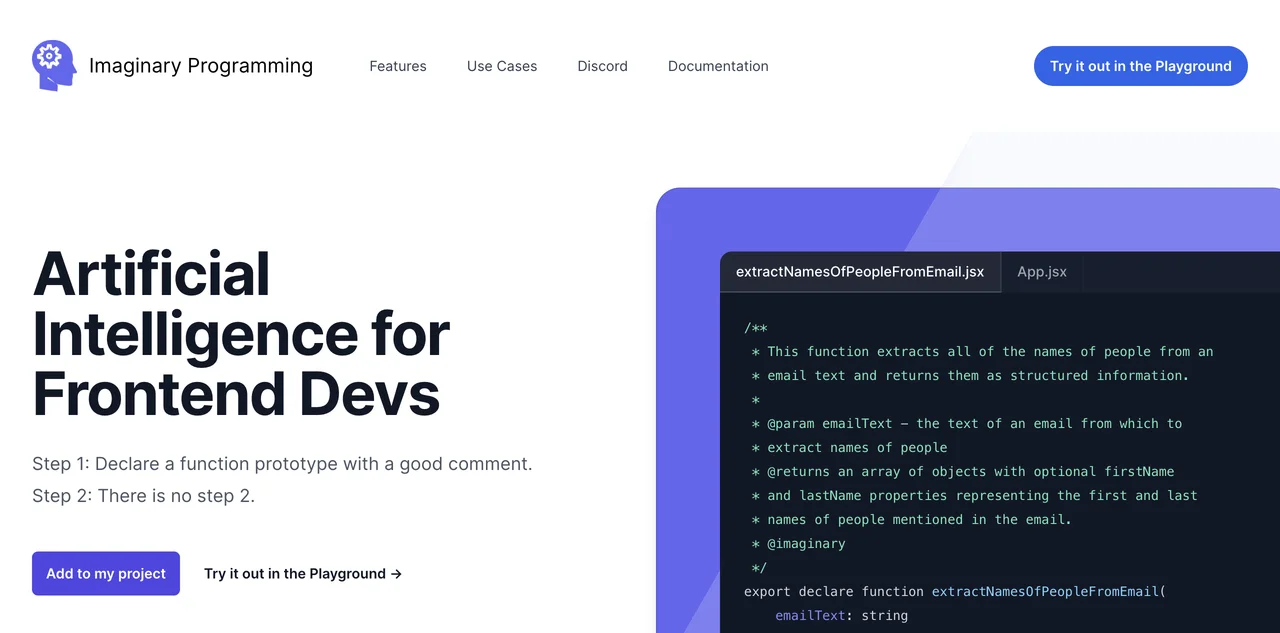Imaginary Programming revolutionizes the way frontend developers integrate artificial intelligence into their projects. By utilizing OpenAI's GPT engine as a runtime, it allows developers to define function prototypes in TypeScript without the need for an implementation. This innovative approach enables the addition of AI capabilities to existing Node.js, Next.js, and React projects seamlessly.
One of the standout features of Imaginary Programming is its ability to generate structured data from GPT. Developers can specify the shape of the data they require, and Imaginary Programming ensures the output is in JSON format. This capability is particularly useful for tasks that require human-like intelligence around text, such as generating titles, classifying data based on semantic intent or emotion, and extracting structured information from unstructured text.
Imaginary Programming distinguishes itself from tools like GitHub Co-Pilot by not just speeding up the solving of existing problems but by enabling developers to tackle entirely new challenges. It's designed for tasks where human-like intelligence is needed, making it a versatile tool for a wide range of applications.
To get started with Imaginary Programming, developers can install it into their current JavaScript and TypeScript projects or experiment with the online Playground. This flexibility allows for easy integration and experimentation, making AI development accessible to frontend developers without the need for a dedicated machine learning team.

